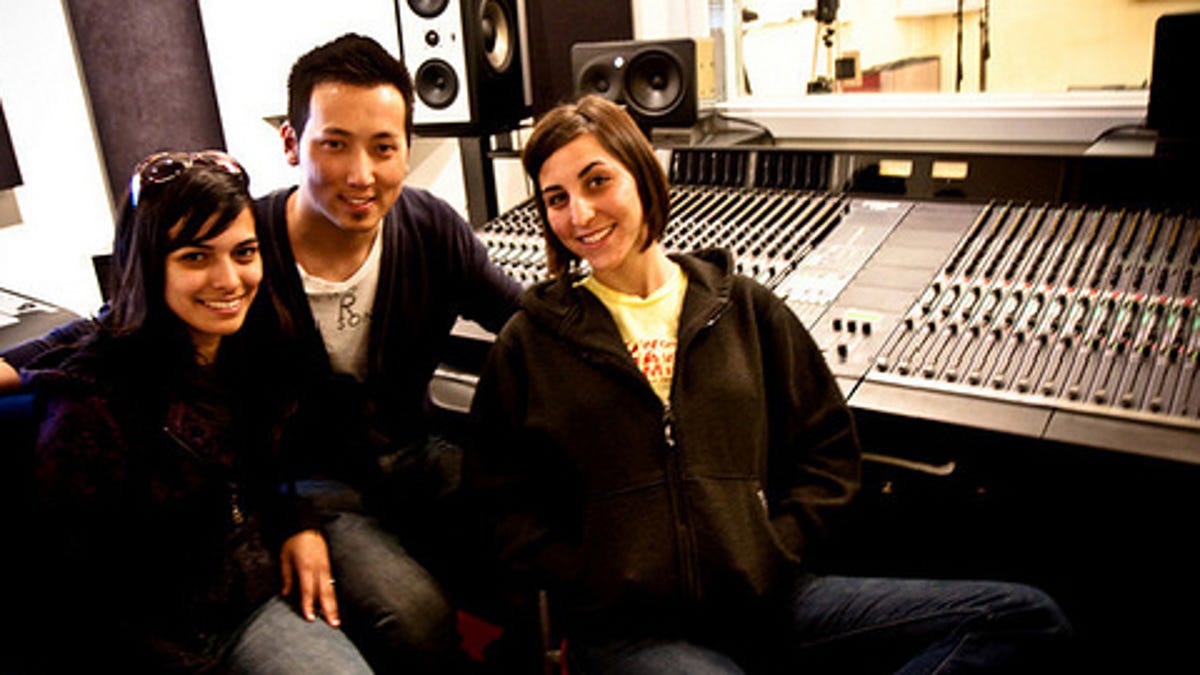WAM: A sound recording school for women and girls
The Women's Audio Mission (WAM) is dedicated to the advancement of women in technology careers in the media and entertainment industries.

The Women's Audio Mission is a San Francisco based, nonprofit organization dedicated to the advancement of women in music production and recording arts. WAM provides hands-on training, experience, career counseling and job placement for women and girls.
I spoke with WAM's founder and executive director, Terri Winston, by phone earlier this week. Before she started WAM seven years ago, she was a college professor and developed the recording arts degree program at City College of San Francisco. Ms. Winston is also an electrical engineer, musician, recording engineer, and record producer.
Steve Guttenberg: Is it fair to describe WAM as a school?
Terri Winston: Yes, but it's small and it doesn't look like a school; more like a studio. The classes are small, with between seven and fifteen students. WAM has 350 to 400 students a year, and we try to funnel them into two- and four-year programs.
SG: Can local musicians and bands record at WAM?
TW: Yes, we offer no- and low-cost recording services for independent artists. We did a band called Built For the Sea that was on Live 105, and we're currently working on other projects.
SG: I truly admire WAM's goals, but recording studios are closing left and right. It's not a growth industry; why train a new generation of engineers? More and more bands are recording themselves, aren't they?
TW: Yes, but that's why we train them in a recording studio, so they can hear the difference between that and cobbling something together in their bedroom. The main advantage is the acoustic environment of a recording studio, and the work flow goes a lot faster.
SG: Right, I believe in the division of labor, and just because you're a great guitar player or singer doesn't mean you can make the best possible recording of your music.
TW: You use your brain a certain way when you're creating music and a different way when you're engineering it. It's a relief when someone else takes care of it for you. A lot of singers that come here are amazed how good their voices sound. Listening over really good studio monitors instead of headphones is also part of the experience.
SG: Better gear and technical know-how can really make a difference. Do you also cover live sound mixing for concerts?
TW: Yes, we get them started here and then work off-site at a local venue called Bottom Of The Hill, a popular indie club and a bigger place called The Independent.
SG: You offer classes for girls as young as 8 years old. That's really cool!
TW: We set them up with a little four-track cassette and anything that makes noise: a couple of speakers, a microphone, electric guitars, keyboards and drum machines. Even if they just get on a mic and start singing my job's done. We're getting them into music and technology, and a lot of them are brilliant, I'm shocked by the things they can do. There's not really a curriculum for the 8-year-olds; it's more about exposure.
SG: WAM doesn't offer degrees?
TW: We're not accredited yet, but we do offer a certificate, which opens some doors at local studios and manufacturers that know us. By the end of this year we'll start to offer our certificate program online.
SG: Thanks.

